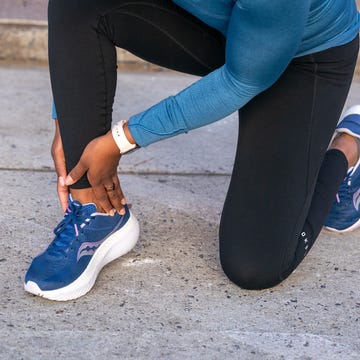All About 75 Hard,
Serum ferritin levels seem to be a big topic with runners of both my age (40s) and with the high school XC team in my area. A lot of runners are getting their ferritin levels checked and finding that they are either on the low side of normal or just below. We are being encouraged to take the HemaPlex supplement to bring our levels back up. As I've been researching the topic it seems that there isn't much information on endurance athletes and what the appropriate level is for them. The doctors in our area are very conflicted. Some say that the low side of normal is fine and others say it is too low for runners putting in high mileage in such a hot and humid climate.
I have not had mine checked yet but my daughter has. Her serum ferritin level is a 13. Some of her friends were also tested and were 10, 12, etc.
Do you have recommendations for what you suggest to athletes? Is it necessary for good race performances to supplement? Can you take too much iron? What level would you suggest that a runner be at?
Thanks for reviewing and any information you may be able to provide.
With gratitude,
Chris Parker
Dear Chris,
These are great questions and I will try to answer them based on the latest information. From my perspective, the ferritin issue has been promoted more by coaches than by science. The normal range for ferritin is 12 to 150 ng/ml in girls, and some people think a ferritin in the 40-60 range is better for endurance performance. There is little data to support this.
A low ferritin reflects low iron stores and sometimes low hemoglobin. In a runner suffering from unusual fatigue, hemoglobin and ferritin levels may be part of the workup to determine the cause. However the use of ferritin levels in someone who is performing well is likely an over utilized and poorly understood test. Part of the past push to check the ferritin level was the role of iron in the body cells during exercise beyond that of hemoglobin in the blood, and the perception that low iron without anemia reduces peak performance. I do not think there is a lot of data to support that contention.
Most runners probably replace enough iron in the daily diet to keep iron stores within the normal range for training and competition. Girls and women who have normal menstrual cycles do have a regular loss of iron and if the diet is not iron rich, may require supplementation; especially casual vegetarians who do not study their diet iron content. Three ounces of red meat 3-5 times a week will likely replace and maintain most iron stores.
For girls and women who are not having regular periods, the more important question is why not? The reason is often under nutrition with inadequate energy stores to keep the body systems functioning and train or perform at peak. So iron supplementation is not the answer for this group, rather, improved nutrition is. For girls and women who are having regular and normal periods, there may be a case for iron supplementation. So if the girls on your daughter’s team have normal periods, are eating a balanced high calorie diet, and training well, I would likely avoid pushing supplementation with their normal ferritin levels. However, many would suggest they take iron until they have ferritin levels over 30 and I would not object to that advice. If they are over age 15-16 and not having regular periods, they should be evaluated by their personal physicians.
So what is the risk of iron supplementation? Significant portions of the running population, especially males, carry the gene for iron storage disease and, as one of my friends puts it, are at risk of “rusting from the inside out.” When iron accumulates abnormally in the body as in hemochromatosis, it destroys cells and tissues, especially the liver. Iron is a potent oxidant and too much iron is toxic to the body. So I do not recommend that men take iron unless there is a proven need, and only until that need is resolved. Men do not leak blood on a monthly basis so the iron store is usually adequate from diet alone. Supplements are a billion plus dollar industry in the US; not all including iron are harmless.
Tight Hamstrings? Heres How to Treat Them.
Cheers,
Bill
Have a question for the Sports Doc? Email him at [email protected]. NOTE: Due to the volume of mail, we regret that Dr. Roberts cannot answer every email.













